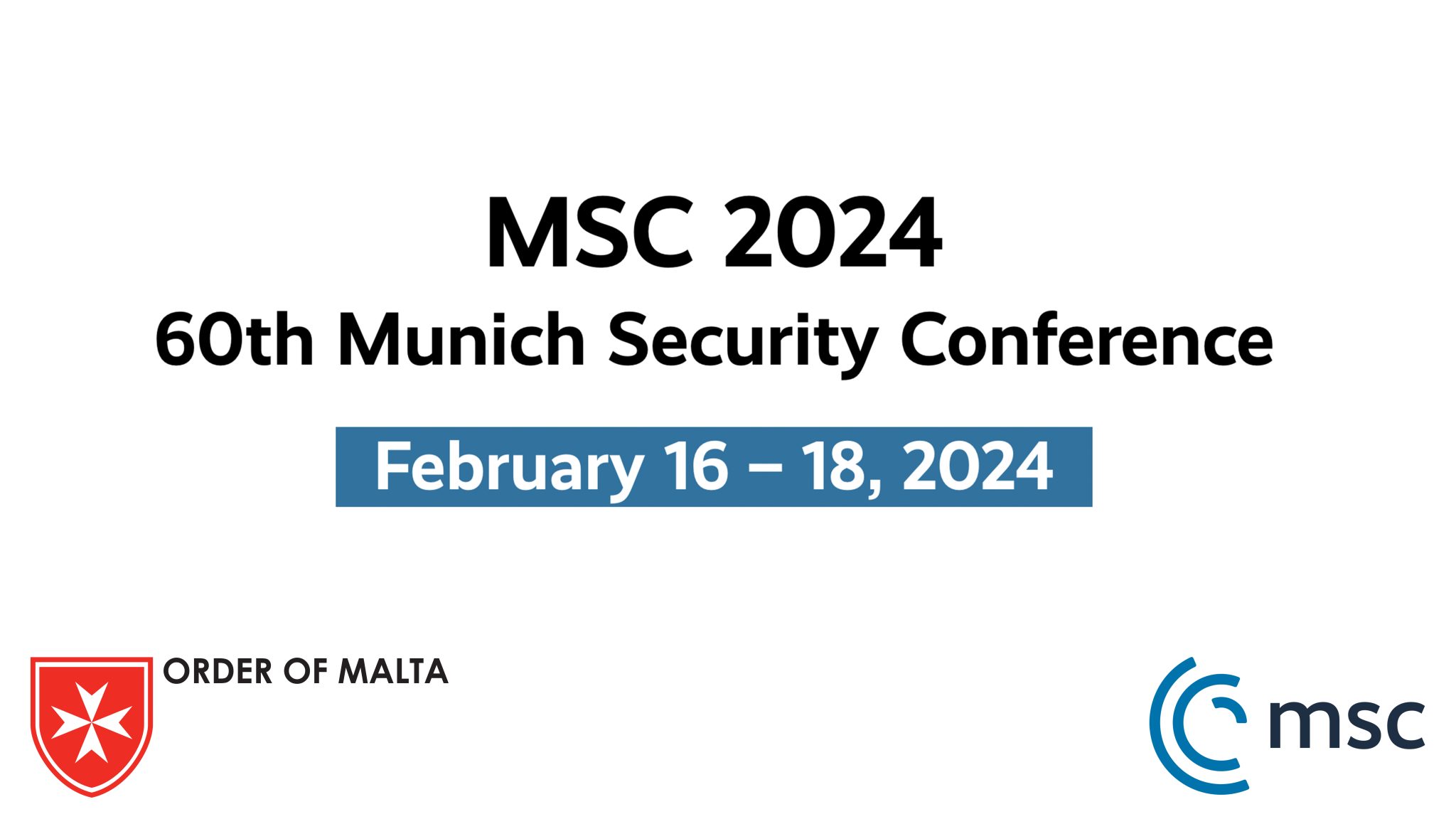The Protection of Humanitarian Workers in Conflict Zones

“Protecting the Protectors: Upholding the Safety of Humanitarian Workers in Conflict Zones” is the title and theme of the high-level side event organized by the Sovereign Military Order of Malta within the 60th Munich Security Conference (MSC), taking place tomorrow Friday, 16 February in the Königssaal. Heads of state, government officials and policy makers are expected in Munich from tomorrow to Sunday 18 February, to discuss the most pressing international security concerns.
The event organized by the Order of Malta intends to shed light onto the current humanitarian emergencies underway in many parts of the world that are displacing millions of people daily and threatening the lives of many humanitarian workers. Among the speakers expected, the Prime Minister of Lebanon Najib Mikati, former UN Secretary General Ban Ki-moon, UNHCR High Commissioner, Filippo Grandi, IOM Executive Director, Amy Pope, President of the International Committee of the Red Cross, Mirjana Spoljaric Egger, Nobel Prize Laureate 1997, Jody Williams, and other representatives from international organizations committed to safeguarding human rights.
With year 2023 setting a record in the highest number of humanitarian emergencies in a decade, principles and norms of the International Humanitarian Law – as enshrined in the Geneva Conventions and their additional protocols – are increasingly under threat. The protection of civilians in conflicts needs to be addressed urgently as shown by the course of the wars in Ukraine and more recently, and even more dramatically in the Gaza Strip.
Civilian buildings, including homes, hospitals, schools, and places of worship are targeted by indiscriminate military attacks. Basic energy infrastructures are purportedly damaged or destroyed with the aim of depriving civilians of basic social services. Children, women, elderly people and other vulnerable social groups are victims of deliberate killings, not even as “collateral damage” as in previous conflicts. South Sudan remains amongst the most hazardous areas of operation for humanitarian workers, while Ukraine, the DRC, Haiti – all countries where the Order of Malta is present with local and international humanitarian staff – and most recently the Gaza Strip, joined the list of regions with the most reported incidents.
The Grand Chancellor of the Order of Malta, Riccardo Paternò di Montecupo, will open the high-level session bringing into focus the topic and the role of the Order of Malta as an advocate for protecting civilians in conflict zones and for promoting adherence to International Humanitarian Law. Universal access to basic social services: “We approach conflicts from the perspective of the most vulnerable ones and those in need, irrespective of nationality, gender or religious belief.”
The aim of the side event is to address pressing issues such as how can faith-based actors be more effective in their call for observance of the international humanitarian principles and laws? How can the international humanitarian actors mobilize the attention of civil society and media? What proposals can the international humanitarian actors advance? How can the humanitarian agencies advocate with governments and in the main international fora a such as the G7, G20 etc.?
“The Order of Malta believes that the humanitarian organizations should gather around a basic objective: uphold the International Humanitarian Law and bring forward a coordinated activity of advocacy with Governments and major international fora, such as the G7 and the G20. By humanitarian organizations I mean international organizations and agencies, and I also mean non-governmental organizations and faith-based organizations that share common values and principles well beyond their differences” explains further the Grand Chancellor Riccardo Paternò di Montecupo.
The high-level event, supported by the Center for Civilians in Conflict (CIVIC), provides a space to share best practices and discuss the policies and measures available to governments and non-state actors to enhance the safety of humanitarian workers and civilians in conflict zones.



